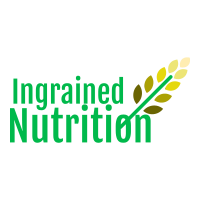It’s national iron awareness week! Most of us know we need iron but do you know what it does? Why do some people have too much while other people struggle to get enough? Keep reading for all the answers.
What is Iron and why do we need it?
Iron is needed used by all the cells of your body; it helps cells use oxygen efficiently in order to function properly. The majority of body iron is found in red blood cells.
Iron’s most important role in the body is as part of haemoglobin, the red pigment in your blood which carries oxygen from the lungs throughout the body, and myoglobin which transports oxygen in the muscles, so basically it moves oxygen around the blood to where we need it!
Other functions of iron:
• Red blood cell production
• A healthy immune system to help fight infection
• Good mental function
• Muscle strength
• Energy production
Iron Deficiency and Iron Deficient Anaemia
Iron deficiency is the number one nutritional disorder in the world with close to 40% of women aged 19 and 50 being diagnosed with the condition. If you do not absorb iron each day from adequate food sources, your bodies iron stores become depleted leading you to become iron deficient. Women are more at risk of iron deficiency than men, because of menstrual period blood loss and higher requirements during pregnancy. Iron-deficiency anaemia is a serious condition where red blood cell production falls and therefore oxygen transport throughout the body is decreased. Iron deficiency and iron-deficiency anaemia and anaemia are not all the same. Iron deficiency is only one cause of anaemia, and in the early stages of iron deficiency, anaemia is not present.
The 3 most common causes of iron deficiency are:
- blood loss: e.g. from heavy menstrual periods, gastrointestinal disease, regular blood donation, injury/trauma e.g. in surgery
- Not enough iron in your diet e.g. vegan diets
- Poor absorption of iron in your diet caused by digestive issues diet e.g. Coeliac disease or too many iron inhibiting foods in the diet e.g. Tannins in tea and coffee
Iron deficiency can cause the following health issues:
• Decreased memory, impaired learning and concentration
• Diminished immune function
• Reduced aerobic sports performance
• Fatigue
• Adverse pregnancy outcomes: risk of premature delivery and low birth weight baby
• Infant motor and mental function delay which can last into young adulthood
• Anaemia.
Iron in the Diet
You need a diet rich in iron to prevent your iron stores running down. Although iron is found in many different foods, some sources of iron are better absorbed than others. The best sources of iron are foods with high iron content and high iron availability also known as Haem iron.
Haem vs Non-Haem Iron
Haem iron is absorbed much more easily than non-haem iron. It is found in foods from animal sources, especially meat, fish and poultry. Sources of haem iron: red meats (beef, lamb, veal, pork) and other meats such as poultry and fish. The redder the meat, the higher the iron content. Organ meats (liver, kidney) and foods made from these (e.g. pate) are also rich sources of haem iron.
Non-haem iron is not absorbed as well as haem iron. It is primarily found in plant foods such as rice, spinach, eggs, quinoa, nuts, soy products, and iron fortified cereals such as weet-bix. Red meat also contains non-haem iron in addition to haem iron. Absorption of haem iron can be aided by pairing these iron containing foods with foods high in vitamin C such as capsicum, broccoli, kiwi fruit, strawberries and oranges among others.
| Sources of Haem Iron | Mg iron | Sources of Non-Haem Iron | Mg iron |
| Lean beef, 100g | 8.2 | Cooked oats, ¾ cup | 4.5 |
| Chicken, 100g | 8.2 | Weet-bix x2 | 4.2 |
| Tinned tuna, 90g | 1.44 | Almonds, 30g | 1.1 |
| Oysters, 75g | 3.3 | Soy milk, 250ml | 1.6 |
| White fish, 100g | 1.86 | Cooked quinoa, 1 cup | 2.8 |
| Spinach cooked, 1 cup | 4 | ||
| Edamame beans, 1/2 cup | 2 | ||
| Eggs, 2 | 1.2 |
How much Iron do I need per day?
The amount of iron required per day varies depending on age, gender and pregnancy with women of reproductive age having the highest requirement. Generally including lean red meat twice a week in addition to other iron rich foods will provide you with adequate iron intake.
| Age | Male mg/day | Female mg/day | Pregnancy mg/day |
| Breastfed infants 0-6 months (bottle fed infants need 5–10 times this amount) | 0.2 | 0.2 | |
| 7-12 months | 11 | 11 | |
| 1-3 years | 9 | 9 | |
| 4-8 years | 10 | 10 | |
| 9-13 years | 8 | 8 | |
| 14-18 years | 11 | 15 | 27 |
| 19-50 years | 8 | 18 | 27 |
| >51 years | 8 | 8 |
Supplementing Iron
Supplements should only be considered if unable to meet requirements through dietary intake or if a diagnosed deficiency is made by your doctor. Iron supplements should be taken in conjunction with a balanced diet and can cause some gastrointestinal discomfort and symptoms such as constipation. Seek medical advice before supplementing iron so you get the right dose for your needs.




